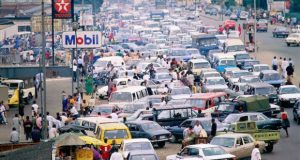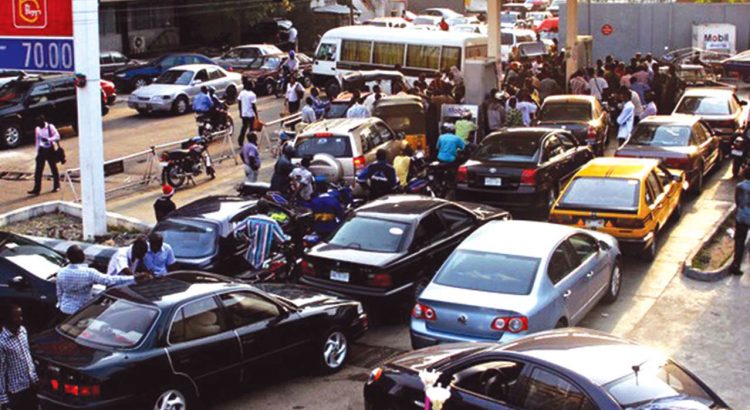Fuel is an important part of a Nigerian’s daily life. Every activity that requires electricity in Nigeria is one way or the other affected by fuel. Transportation, productivity, commodity prices and general living in Nigeria is connected and affected by the availability and price of fuel. This is due to so many factors which have various underlying causes that are unique to the Nigerian situation.
Scarcity of fuel in Nigeria has become a recurring event that bites hard at Nigerians while creating a special economic situation that favour some. It ripples around affecting the price of goods and services. The Nigerian atmosphere during this events is multifaceted. The average Nigerian has to queue at filling stations or buy at high prices from the black market, politicians and stakeholders seize the day to point fingers and prices of daily necessities increase.

2015 – 2017 fuel scarcity review
In 2015 the Chairman of the Independent Petroleum Marketers Association of Nigeria (IPMAN), Sunny Nkpe said Nigeria is constantly plagued with fuel crises because local refineries are not being used. Some sources claimed that the lack of local refineries was due to the amount of money available to be made (illegally) from importation of petroleum products. The 2015 scarcity was said to be an artificial creation of the Petroleum marketers in attempts to force the government to pay the remaining subsidy at that time. The fuel scarcity had a huge effect, passengers were stranded at airports, even mobile network operators threatened to shut down operations.
In 2016, the fuel scarcity occurred intermittently for several months, some of the several reasons for the scarcity then were partial deregulation of the downstream petroleum sector, withdrawal of members of the Major Oil Marketers Association (MOMAN) from importation of petroleum fueled by their inability to access forex. The Minister of State for Petroleum Resources, Ibe Kachikwu attributed the major problem of fuel scarcity then to lack of reserve to fall back on when there is a gap in supply.
The 2017 fuel scarcity according to the Executive Secretary of the Depot and Petroleum Products Marketers Association, DAPPMA, Olufemi Adewole, is due to the inability of those contracted by the NNPC to supply petrol under the Direct Sales – Direct Purchase (DSDP) arrangement to deliver due to pricing challenges. According to him members of DAPPMA pay PPMC (Pipelines and Products Marketing Company)/NNPC in advance for petroleum products. But, fully paid up PMS orders have neither been programmed nor loaded, this orders were in excess of 500 thousand MT (about 800 million litres), enough to meet the nation’s needs for 19 days at a daily estimated consumption of 35 million litres. The NNPC however accused DAPPMA of insincerity, claiming that it had supplied appreciable volume to DAPPMA, MOMAN and IPMAN. It further said members of DAPPMA had taken receipts of products from PPMC and owe the company as much as N26.7 billion as at December 21, 2017. The NNPC claims it became the sole importer and supplier of petrol to the Nigerian market because DAPPMA members were unable to meet expectations despite concession by government to DAPPMA to access foreign exchange at an official rate of N305 to the dollar.
Fuel Scarcity: any solution
The national president of IPMAN Lawson Obasi in 2015, suggested that loading from other coastal depots besides Lagos would de-congest Lagos, reduce scarcity and normalise the price of petroleum products. Removal of subsidy, revitalising local refineries and industrial bail out were also some of the proposed solutions to fuel scarcity at that time.
Fast forward to 2017 fuel subsidy had been long removed since May 2016. A former minister of Education, Oby Ezekwesili, propose full deregulation of the petroleum sector as a solution. Fuel marketers complain of difficulties in sourcing bank facilities. DAPPMA complains government still owes its members foreign exchange for imports they delivered before the current price regime took off. IPMAN complains of exorbitant charges by DAPPMA. Distribution is hampered by bad roads. Refineries are still in bad shape.

Comments